Tetrabutylammonium borohydride
Synonym(s):Tetra-n-butylammonium borohydride;Tetra-n-butylammonium-tetrahydridoborate
- CAS NO.:33725-74-5
- Empirical Formula: C16H40BN
- Molecular Weight: 257.31
- MDL number: MFCD00012035
- EINECS: 251-658-2
- SAFETY DATA SHEET (SDS)
- Update Date: 2025-09-25 17:15:13
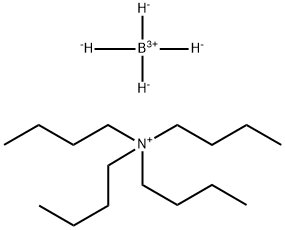
What is Tetrabutylammonium borohydride?
Chemical properties
white crystalline powder
The Uses of Tetrabutylammonium borohydride
Tetrabutylammonium Borohydride is a strong reducing agent used in the synthesis of hyperbranched polyglycerol grafting on the surface of silica-coated nanoparticles.
Purification Methods
Purify it by recrystallisation from EtOAc followed by careful drying under vacuum at 50-60o. Samples purified in this way showed no signs of loss of active H after storage at room temperature for more than 1year. Nevertheless samples should be stored at ca 6o in tightly stoppered bottles if kept for long periods. It is soluble in CH2Cl2. [Raber & Guida J Org Chem 41 690 1976, Br.ndstr.m et al. Tetrahedron Lett 3173 1972.]
Properties of Tetrabutylammonium borohydride
| Melting point: | 124-128 °C (lit.) |
| Flash point: | 140°(284°F) |
| storage temp. | Store below +30°C. |
| solubility | Chloroform (Sparingly), DMSO (Sparingly, Heated, Sonicated), Methanol (Slightly |
| form | Crystalline Powder and Chunks |
| color | White |
| Water Solubility | Soluble |
| Sensitive | Moisture Sensitive |
| BRN | 4212332 |
| Stability: | Hygroscopic, Moisture Sensitive |
| CAS DataBase Reference | 33725-74-5(CAS DataBase Reference) |
| EPA Substance Registry System | 1-Butanaminium, N,N,N-tributyl-, tetrahydroborate(1-) (33725-74-5) |
Safety information for Tetrabutylammonium borohydride
| Signal word | Danger |
| Pictogram(s) |
 Flame Flammables GHS02  Corrosion Corrosives GHS05 |
| GHS Hazard Statements |
H261:Substances And Mixtures Which, In Contact With Water,Emit Flammable Gases H314:Skin corrosion/irritation |
| Precautionary Statement Codes |
P223:Keep away from any possible contact with water, because of violent reaction and possible flash fire. P260:Do not breathe dust/fume/gas/mist/vapours/spray. P280:Wear protective gloves/protective clothing/eye protection/face protection. P231+P232:Handle under inert gas. Protect from moisture. P303+P361+P353:IF ON SKIN (or hair): Remove/Take off Immediately all contaminated clothing. Rinse SKIN with water/shower. P305+P351+P338:IF IN EYES: Rinse cautiously with water for several minutes. Remove contact lenses, if present and easy to do. Continuerinsing. |
Computed Descriptors for Tetrabutylammonium borohydride
| InChIKey | GMBOFJFPOCGSOI-UHFFFAOYSA-N |
Tetrabutylammonium borohydride manufacturer
JSK Chemicals
3Y
Phone:+91-9879767984
Whatsapp: +91-9879767970
product: Tetrabutylammonium borohydride, 98% 99%
New Products
4,4-Difluoropiperidine hydrochloride tert-butyl 9-methoxy-3-azaspiro[5.5]undecane-3-carboxylate Indole Methyl Resin N-Isopropylurea N,N-Dicyclohexylcarbodiimide(DCC) MELDRUMS ACID 5-METHYLISOXAZOLE-4-CARBOXYLIC ACID Magnessium Bis glycinate Zinc ascorbate 1-bromo-2-butyne 2-acetamidophenol 9(10H)-anthracenone Erythrosin B, 4-Piperidinopiperidine 2-((4-morpholinophenylamino) (methylthio) methylene) malononitrile 2,4-dihydroxybenzaldehyde 3-(4-morpholinophenylamino)-5-amino-1H-pyrazole-4-carbonitrile Methyl 2-methylquinoline-6-carboxylate 2,6-dichloro-4-nitropyridine 4-Bromo-2-chlorobenzonitrile 2-(benzylamino)acetic acid hydrochloride 4-(tert-Butoxycarbonylamino)but- 2-ynoic acid 3,4-dihydro-2H-benzo[b][1,4]dioxepine 1-Phenyl-1-cycloprppanecarboxylicacidRelated products of tetrahydrofuran
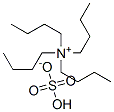
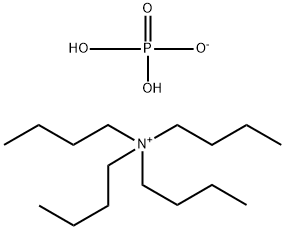
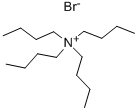
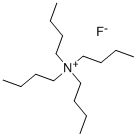
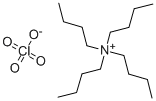
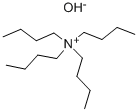
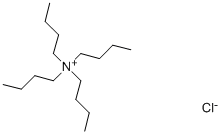
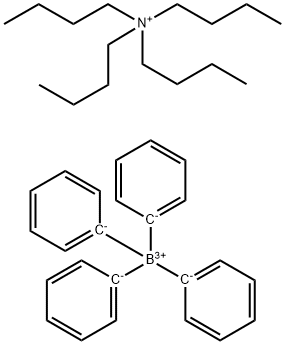
You may like
-
 33725-74-5 Tetra Butyl Ammonium Borohydride 99%View Details
33725-74-5 Tetra Butyl Ammonium Borohydride 99%View Details
33725-74-5 -
 Tetrabutylammonium borohydride, 98% 99%View Details
Tetrabutylammonium borohydride, 98% 99%View Details
33725-74-5 -
 Tetra-n-butylammonium borohydride 98.00% CAS 33725-74-5View Details
Tetra-n-butylammonium borohydride 98.00% CAS 33725-74-5View Details
33725-74-5 -
![Tetrabutylammonium Borohydride [Reducing Reagent] CAS 33725-74-5](https://img.chemicalbook.in//Content/image/CP5.jpg) Tetrabutylammonium Borohydride [Reducing Reagent] CAS 33725-74-5View Details
Tetrabutylammonium Borohydride [Reducing Reagent] CAS 33725-74-5View Details
33725-74-5 -
 Tetrabutylammonium borohydride CAS 33725-74-5View Details
Tetrabutylammonium borohydride CAS 33725-74-5View Details
33725-74-5 -
 20677-73-0 (2,2-diethoxyethyl)methylamine 98%View Details
20677-73-0 (2,2-diethoxyethyl)methylamine 98%View Details
20677-73-0 -
 3-(4-(hydroxyamino)-1-oxoisoindolin-2-yl)piperidine-2,6-dione 98%View Details
3-(4-(hydroxyamino)-1-oxoisoindolin-2-yl)piperidine-2,6-dione 98%View Details -
 57381-49-4 2-bromo-4-chlorobenzonitrile 98%View Details
57381-49-4 2-bromo-4-chlorobenzonitrile 98%View Details
57381-49-4
Statement: All products displayed on this website are only used for non medical purposes such as industrial applications or scientific research, and cannot be used for clinical diagnosis or treatment of humans or animals. They are not medicinal or edible.
